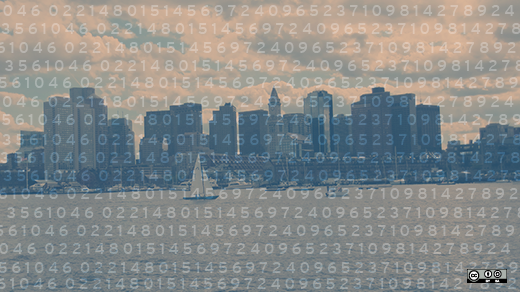When I first heard of Mozilla Open Badges, my heart skipped a beat. Wisely implemented, digital badges can help individuals and communities focus their energies on worthy goals.
As a Cub Scout, I loved earning badges. These badges gave purpose and direction to my life. In the past few years I've done volunteer work as a play advocate helping to organize Takoma Plays, a grassroots effort to get community members of all ages more involved in healthy play.
When Takoma Plays founder Pat Rumbaugh told our group that Takoma Park could earn the distinction of being a “Playful City” from national nonprofit KaBOOM, our group of volunteers set about meeting all the necessary requirements. Takoma Park, Maryland, has been designated a “Playful City” for the past five years, and I'm mighty proud to have had a role in making that happen.
Switching to the digital realm, how could communities earn the distinction of being a digital city? What existing body could specify, determine, and encourage such a designation?
Perhaps the newly formed United States Digital Service might take this on as part of their mission. This government body was not formed with this particular mission in mind, but in a democracy—as in any open source project—it's the people who determine the shared mission.
So, you might be wondering what the indicators are for a digital city. Here's what comes to mind:
The extent of...
- digital competence training opportunities for youth and adults throughout the community
- community efforts to bridge the digital divide
The percent of...
- community members who are active YouTube video producers
- community members who regularly blog
The number of...
- new digital-related businesses started in the past year in that community
- successful crowdfunding campaigns launched by community members
The degree to which...
- the public libraries in that community have transitioned from analog libraries to digital libraries
- coding is taught to youth in school and outside of school
- creativity and innovation are associated with the reputation of the community
- entrepreneurship is a shared community value
The extent to which community...
- is the source of valued ideas usable by other communities
- has fostered the development of one or more makerspaces
- has hosted one or maker faires or other events celebrating the creativity of youth and adults
- has brought together diverse community stakeholders and groups to work together in common cause
- has invented new traditions that promote the formation of social fabric
- has been able to think more boldly about ways of addressing longstanding social issues
You might have noticed that in the above list I used the word “extent” and “degree” in many of the criteria. Maybe cities can be rewarded with digital badges of varying degrees: bronze, silver, gold, platinum, or graphene. These designations could allow city leaders the ability to choose the most practical goal and timeframes for their own community.
For instance, a community might choose to reach bronze within three years and gold within six years. When you set your eyes on the prize, that process itself has tremendous worth, regardless of whether you attain it or not.
Mozilla Open Badges are exactly what our society needs. Let's move the idea one notch higher and establish ways for communities to earn digital badges. Watch what happens when community members work together earnestly towards a shared goal. That can be a thing of beauty to behold.







5 Comments